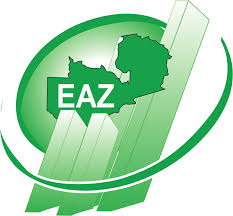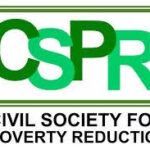By Cecilia Chiluba
Economics Association of Zambia (EAZ) has urged Government to increase the health sector allocation to at least 15% of the 2026 National Budget.
Submitting the 2026 national budget proposals to the Ministry of Finance and National Planning, Association National Secretary, Dr. Nicholas Mainza noted that the current allocation of 10.7% is not sufficient to meet the demands of the health sector.
“This aligns with the Abuja Declaration (2001), which set a target of allocating at least 15% of the annual budget to improve the health sector,” Dr. Mainza noted.
He also called for increased allocation for Environmental Protection to at least 2% of the National Budge from the current 0.7%.
Dr. Mainza observed that the 0.7% allocated in the 2025 national budget is not sufficient, particularly in light of the country’s vulnerabilities to drought and climate change.
“Increasing the allocation to at least 2% will enable critical investments in reforestation, early warning systems, climate adaptation models, and community-based natural resource management, enhancing resilience and fostering long-term sustainability.”
“Organization for Economic Co-operation and Development (OECD) countries spend around 1-2% of total government expenditure on environmental protection,” he observed.
He further implored government to extend excise duty to other single-use plastics.
Dr. Mainza stressed the need to introduce an excise duty of K0.5 per unit on non-biodegradable disposable plastic containers, such as bottles, food containers, take-away packs, plates, bowls, cups, and trays.
“Despite the imposition of an excise duty on plastic carrier bags, the persistence, and even growth of plastic pollution highlights several underlying challenges that limit the effectiveness of this fiscal measure as an environmental deterrent.”
“Limiting taxation to plastic carrier bags addresses only a fraction of plastic pollution sources. Many other single-use plastics, especially in the food, beverage, and retail sectors, continue to be consumed at high levels,” he emphasized.
Dr. Mainza stated that the Association is of the view that extending excise duty to these items creates a more holistic and coherent approach to reducing overall plastic waste.
“This measure is expected to incentivize the adoption of eco-friendly alternatives, align with global best practices on green taxation, and generate additional revenue to support waste management efforts,” Dr. Mwanza added.
The Association also wants Government to review and broaden the presumptive tax regime for informal sector operators, which is currently limited to a few categories such as taxis, minibuses and is poorly enforced.
“Broadening the regime to include more informal businesses like, marketeers, saloons and barbershops, car wash businesses, and mobile money agents can enhance compliance and widen the tax base with minimal administrative burden.”



